Last Wednesday, November 24, a significant event took place in Almaty, Kazakhstan – the meeting of the Central Asian Network of the Academic Societies (NAS). The event was attended by 24 representatives from 19 universities in the region. This gathering, held for the first time within the walls of the academic institute - Al-Farabi Kazakh National University, was a collaborative effort of the Blue Peace Central Asia project, supported by the Swiss Agency for Development and Cooperation (SDC), and the USAID Regional Water and Vulnerable Environment (WAVE) project in partnership with the Regional Environmental Centre for Central Asia (CAREC). These projects continue to contribute to the strengthening of cooperation in the region.
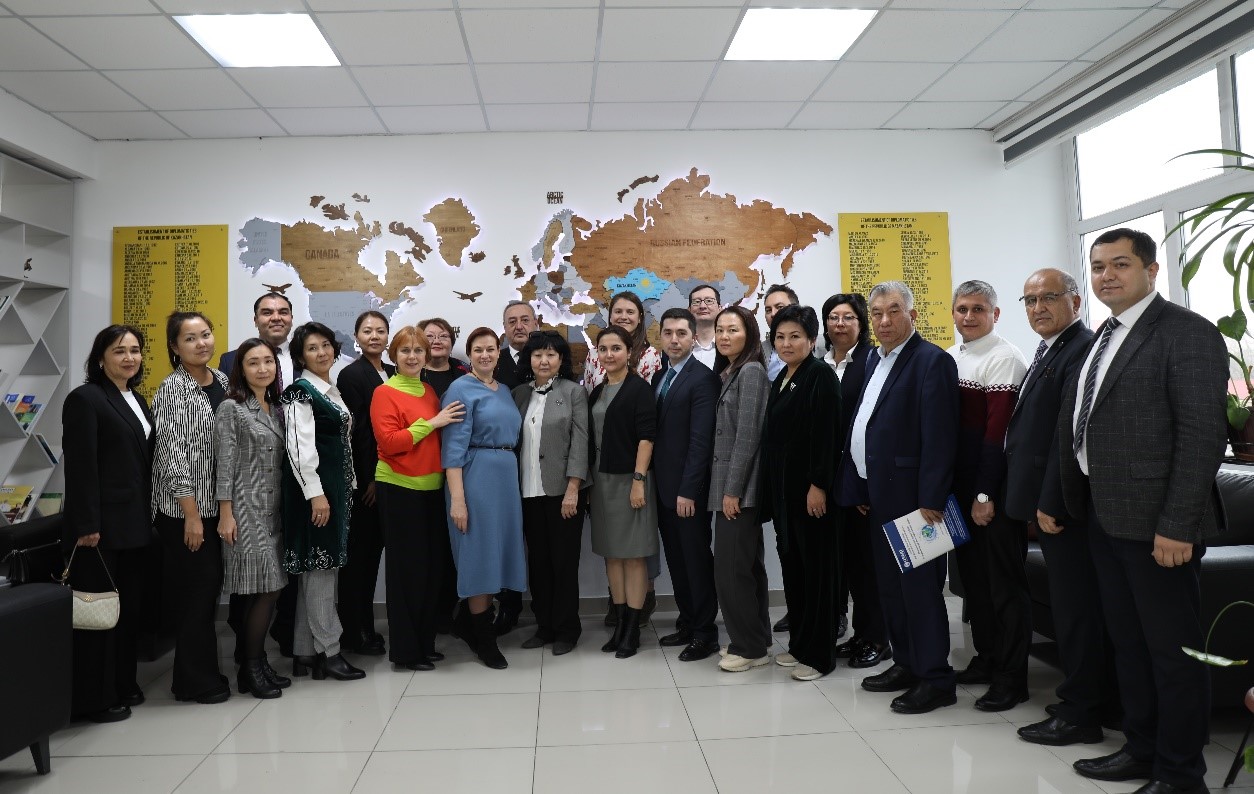
In its 10 years of existence, NAS has had a significant impact on developing the educational and research potential of Central Asian universities, introducing advanced knowledge and expertise as well as international teaching practices in the field of water and related disciplines.
The event's opening was accompanied by welcoming remarks from the co-organizer, Al-Farabi Kazakh National University, as well as representatives from the Regional WAVE Project and the Swiss Agency for Development and Cooperation (SDC).
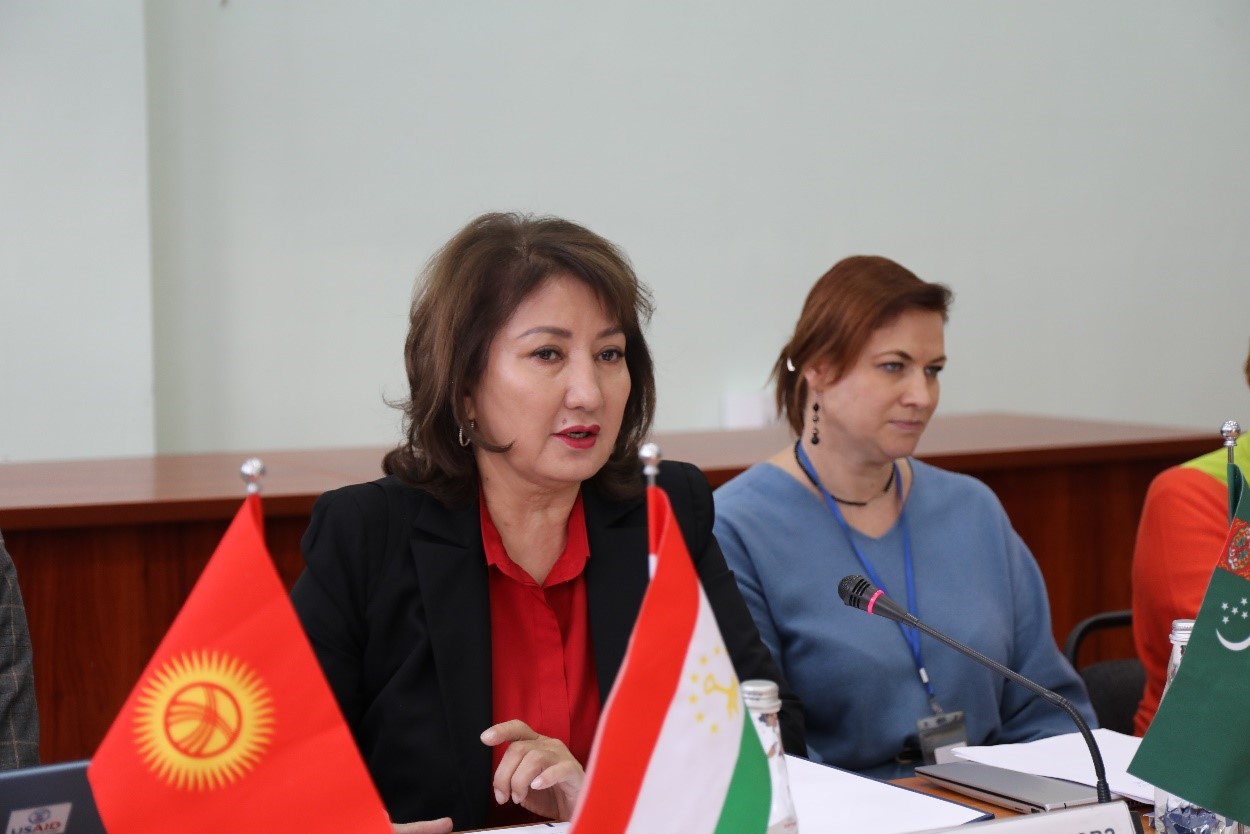
"We, as the UN Global Hub, aspire to expand collaboration to achieve UN Sustainable Development Goals. Scientific conferences, such as this one, provide an excellent opportunity for knowledge exchange, establishing partnerships, and fostering collaboration among experts and scholars," noted Jamila Aitzhanova, Vice-Rector for Scientific and Innovative Activities, and a member of the Board at Al-Farabi Kazakh National University.
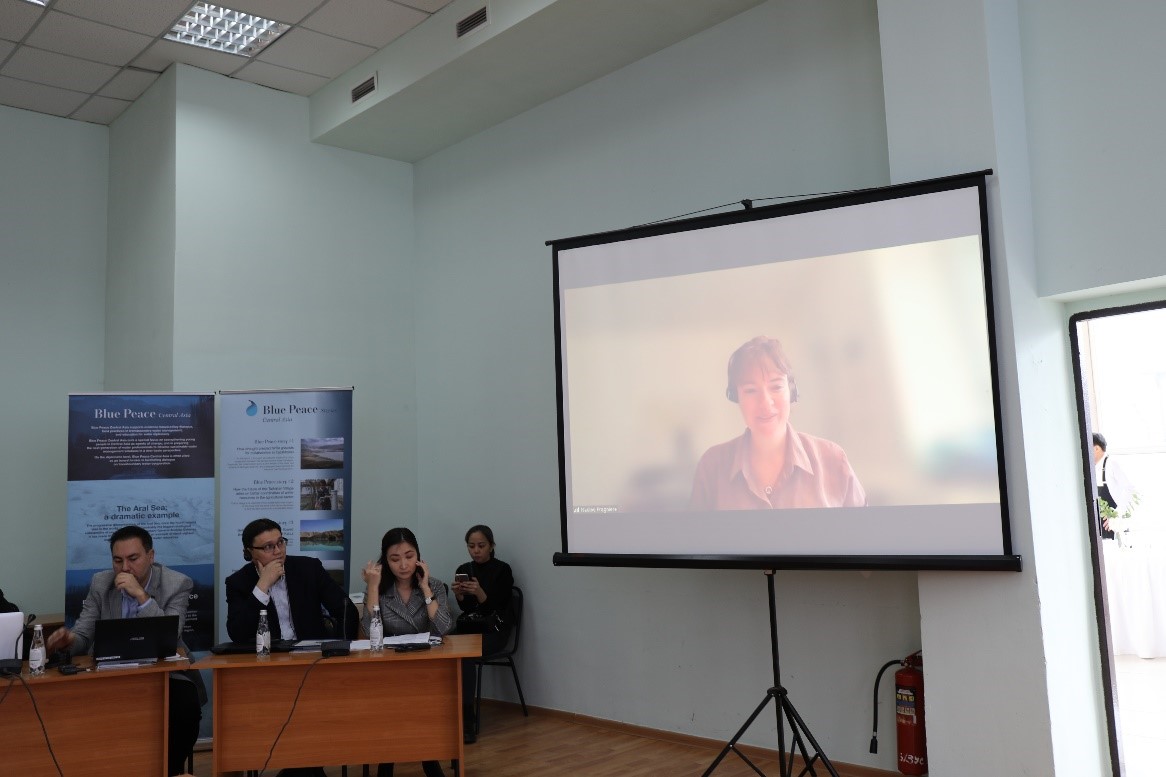
Nadin Fragnière, Climate Change and Water Advisor at SDC, emphasized SDC's intention to continue supporting NAS in her opening speech: "Switzerland defines strengthening the potential of the future generation of water professionals as one of its strategic directions through support at various levels. Our interventions have included updating university curricula on topics such as 'Hydrodiplomacy,' 'Water, Sanitation, and Hygiene,' and 'Hydro Modeling' using advanced Swiss expertise. We plan the second phase of the Blue Peace Central Asia Initiative and commit to continuing work in the field of education and strengthening curriculum on integrated water resources management in the region."
During the first session of the meeting, representatives of Central Asian universities and international development projects discussed the progress and prospects of NAS. To facilitate effective information exchange among universities, a virtual Community of Practitioners platform was created on the CAREC website at riverbp.net. In the last six months, the number of registered users doubled, reaching 76 experts of various profiles. The platform aims to facilitate the exchange of information, educational materials, and experiences, providing a space for real-time communication among water resource specialists. A mobile version of the platform has been recently launched. Participants then shared their collaboration experiences and identified potential partnership opportunities for educational institutions through this platform and NAS.
As an example of establishing connections between universities, representatives from Eurasian National University (ENU) named after L.N. Gumilyov and the Academy of Public Administration (APA) under the President of the Republic of Tajikistan were highlighted. Thanks to NAS meetings, universities have been able to foster bilateral interaction by organizing virtual conferences and student Olympiads. Plans to expand academic exchange opportunities between universities include research projects and internships for faculty members.
Interactive discussions among NAS members also helped identify potential formats for university collaboration, including summer schools, scientific conferences, guest lectures, dual-degree programs, and joint projects to explore transboundary water issues at the regional level.
The concluding session of the meeting highlighted key development projects actively implemented in the region with the participation of members of the NAS.
As part of the WAVE Regional Project, a series of events are planned for the next six months, including support for a competition for young scientists aimed at conducting joint research in the promotion of the nexus approach, integrated water resources management (IWRM), and the rational use of water and land resources. Additionally, there are plans to develop an educational module on the safety of hydraulic technical structures (HTF) and conduct training for trainers from relevant agencies.
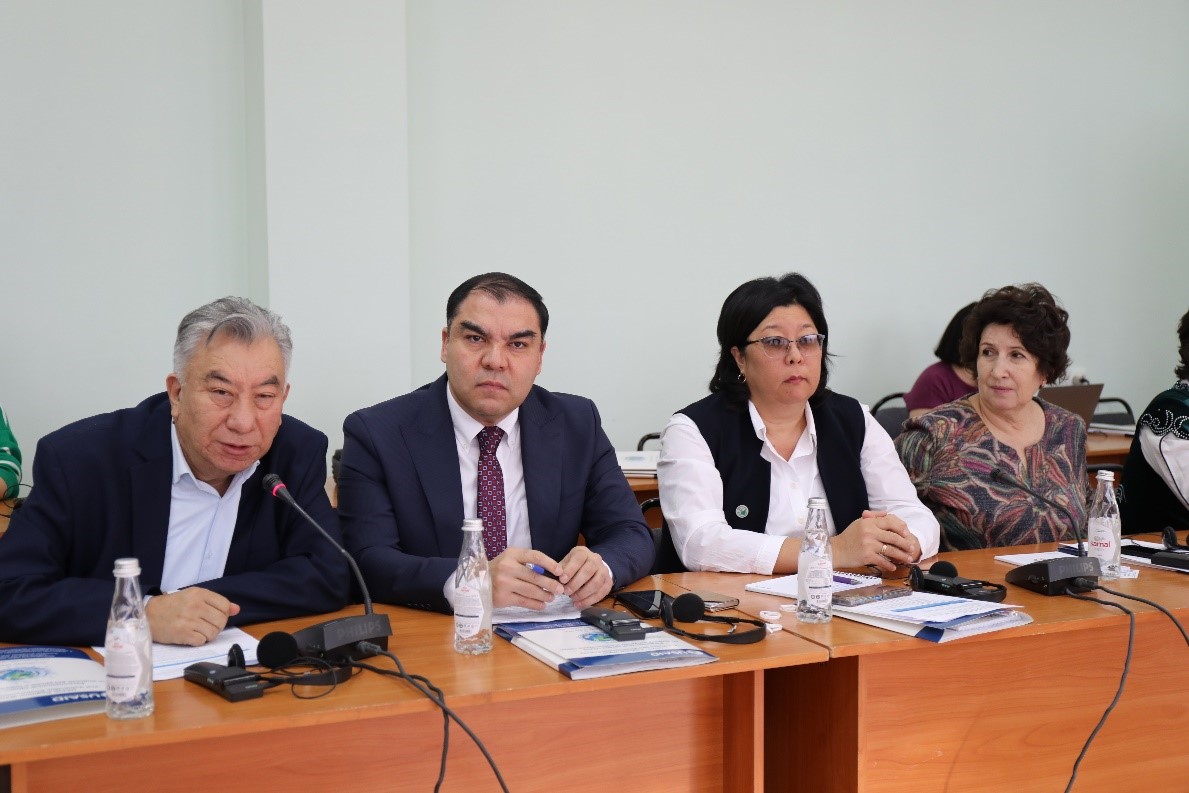
The project funded by the European Union ERASMUS+ program, titled "HWCA: Strengthening Higher Education in the Water Sector for Climate Resilience and Security in Central Asia," aims to modernize master's programs in water governance and water diplomacy in the region. Project experts, including representatives from universities in Central Asian countries, Hungary, the Netherlands, Italy, and France, will update or create new courses, contributing to the training of water resource managers and water diplomats. The harmonization of educational programs will facilitate student mobility between universities in Central Asia and their partners in the European Union. The regional coordinator for the project is the Diplomatic Academy of the Ministry of Foreign Affairs of the Kyrgyz Republic.
The project by the German Development Agency (The Deutsche Gesellschaft für Internationale Zusammenarbeit or GIZ) titled "Water Resources Management in Central Asia Considering Climate Impact" aims to develop a regional educational module for basin organizations, focusing on integrated water resources management with consideration of climate resilience and gender aspects. To achieve this, a Regional Group will be established, including five university members of the NAS, in collaboration with the German Martin Luther Halle-Wittenberg University and the Swiss Federal Institute of Technology Zurich, coordinated by CAREC.
The needs assessment will enable the University Consortium to tailor the regional module to national training programs for basin organizations, promoting the principles of integrated water resources management in countries and supporting the sustainable adaptation of the water sector to climate challenges.
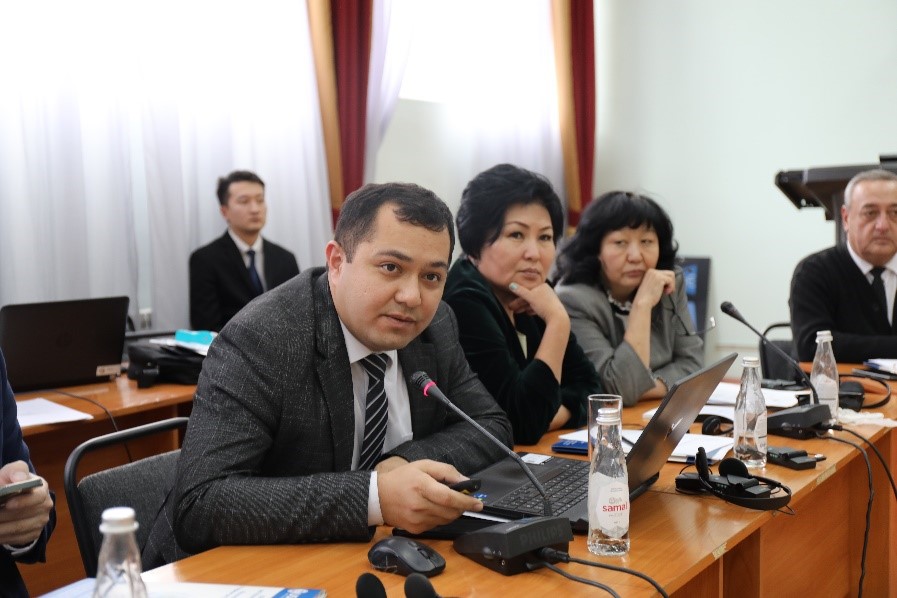
The SDC-funded CoP4WASH project (Development of the Community of Practice and Research on Water, Hygiene, and Sanitation in Central Asia), implemented in 2022-2023 and presented by teachers from Tajikistan and the Kyrgyz Republic, has also garnered significant interest. The project aims to improve water supply and sanitation in Central Asia by collecting data on the design, planning, and construction of decentralized water supply and sanitation systems. Additionally, the project involves the development of guidelines and recommendations for their further implementation in the region. To conduct research, five universities received laboratory equipment for analyzing indicators of drinking and wastewater. Ensuring the integration of education, science, and practice, universities collaborate closely with relevant NGOs in the Water Supply and Sanitation sector, including the International Secretariat for Water in Tajikistan (ISW), Borda, and Equidev. Such cooperation allows students to conduct research at the NGOs' pilot projects. The coordination of the Community's activities is undertaken by the University of Applied Sciences and Arts of Northern Switzerland. The foundation for creating the Community was laid during the training of trainers on WASH conducted as part of the Blue Peace Central Asia project.
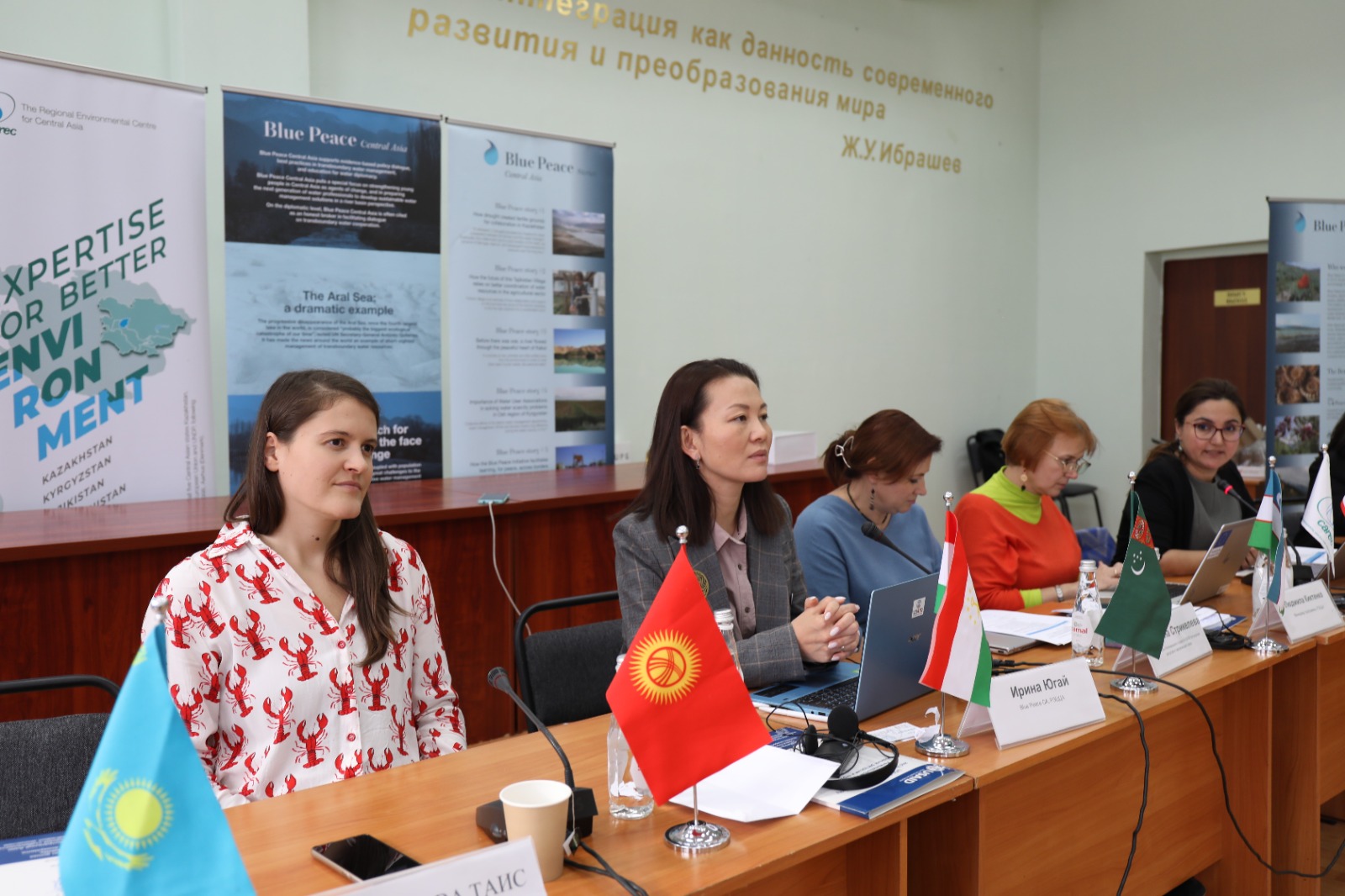
Additionally, participants discussed the establishment of a Community of Practice on Water Diplomacy, drawing on the experience and lessons learned from the CoP4WASH project. They emphasized the applied significance of the research conducted, highlighting its practical relevance in the field of water diplomacy.
The resolution of the meeting resulted in the decision to conduct the next two NAS meetings - one online in March-April and the other in a hybrid format in October 2025, coinciding with the Scientific Conference in Dushanbe, Tajikistan.
The NAS meeting Agenda can be found here.
Presentations can be found here.
Foto materials can be found here.
